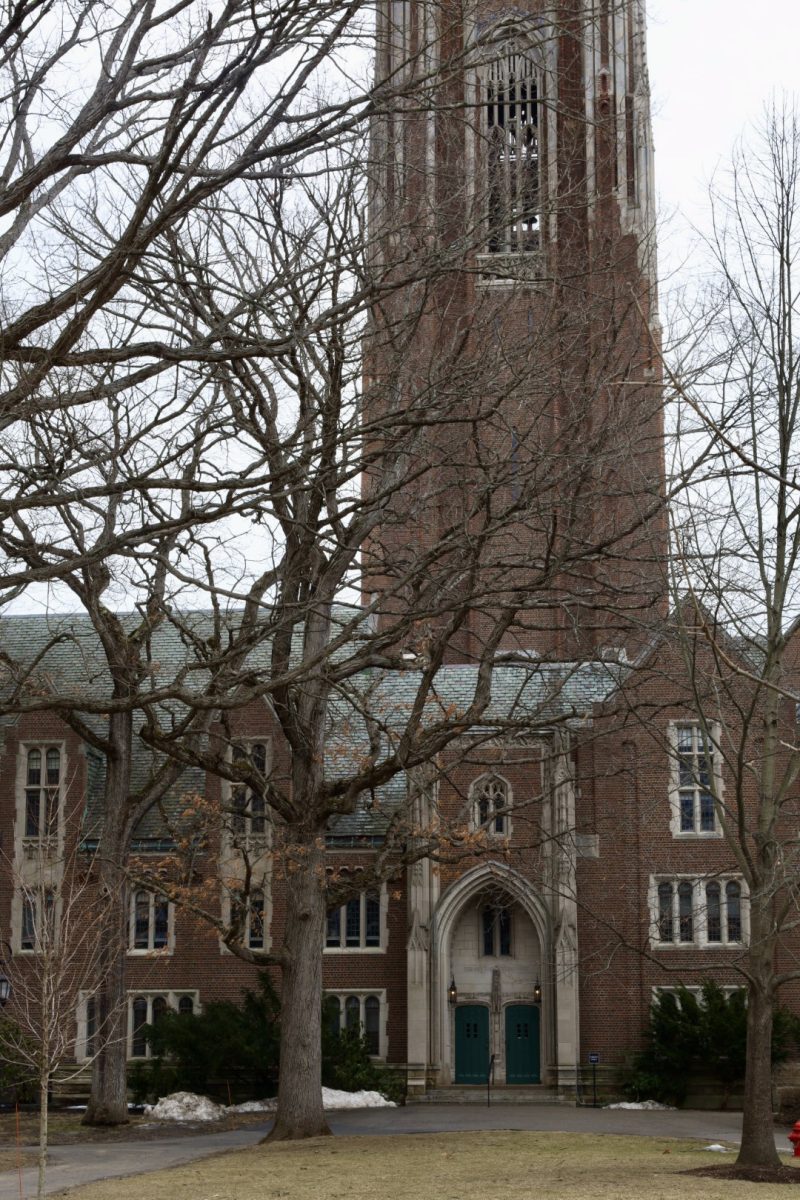College Pulse was founded by Dartmouth students to gain insight into college students’ attitudes and mental health. The 2023 Campus Climate Survey polled 39,942 respondents from over 150 colleges and universities. To be as representative as possible, the College Pulse founders recruit respondents through web advertising, emails and university organizations, and they rebalance the surveys to maximize accurate demographic distribution. They also allow viewers to filter responses based on categories such as gender, sexual orientation, race, major and university, among others.
As for the 2023 Campus Climate Survey, when asked the question: “How often would you say that you feel anxious,” 19% of the Wellesley students who were sampled said they felt anxious less than half of the time and 26% said about half the time. 36% said they felt anxious most of the time, and 17% said always. According to the overall responses, 26% felt anxious less than half the time, 31% said about half the time, and 26% said most of the time.
Psychology major Amanda Cheng ’24 said that she believes that accuracy is one of the most important parts of the process.
“I know that [the Pulse App] started up in Dartmouth, and I don’t know how the Wellesley kids got to it, but it could be through people who are very unsatisfied … or very happy, skewing the results,” said Cheng.
Despite concerns about the Campus Climate survey’s research design, psychology major Kaitlyn Crowley ’24 said she does believe in the importance of publishing public data about students’ mental health. Both Crowley and Cheng are involved in ongoing efforts concerning mental health resources for peers and are looking for ways to obtain reliable statistics about campus mental health.
“That’s why we want to publish a survey to see if there’s a desire for a peer counseling service at all,” said Crowley.
Cheng agreed, stating that she hopes that this campus-wide poll would be a push towards the start of a new non-crisis resource for people who just want to talk to a classmate or same-age friend going through similar circumstances.
“We know that so many other colleges [opt in to peer counseling] including Harvard, which has seven or eight peer support programs,” said Cheng. “When I first came to Wellesley, I was a little bit disappointed that there were no peer support programs … there was no direct peer support, [or] more importantly, anonymous peer support platforms.”
Cheng said that all the students involved with the idea of peer counseling are psychology students hoping to go into some form of psychiatry work in the future as their careers. She added that many of the people interested are passionate about the topic because they have personally felt the need for peer support while at Wellesley. For Cheng and others, peer support is an important tool to be used along with resources from the Stone Center.
“The Stone Center [staff members] are the professionals, so they will be the main and most reliable source of student mental health services, at Wellesley,” said Cheng. “But at the same time, people want to be listened to. Being able to have someone be there, knowing that they are going to just listen and the conversation will be respectful and they are trustworthy and won’t divulge their life to you [is important]. Sometimes people just want to rant to a same-aged friend.”
“If I’m someone who’s feeling really depressed or really anxious and I find out that it’s not just me … it makes you feel a little bit less alone in what you’re feeling,” Crowley said in agreement.
Crowley and Cheng gave their opinions on Wellesley’s campus culture and how it contributes to students’ mental health.
“There’s a culture of needing to be picture perfect, and that’s how people show themselves — and then it ends up creating a culture of stress for the people who think that they’re not doing well,” said Crowley. “We try to pretend like nobody is struggling at all and I think that everybody is struggling in their own way and I think it’s important to talk about that because it’s hard when you feel very lonely.”
Cheng added, “I don’t think any one college is less stressed than any other one. For you to be able to get through a four-year program is stressful for everyone.”
Crowley reiterated the necessity of ensuring that adequate mental health resources are available and that all Wellesley students are able to access them.
“It’s important to have resources that are accessible, and then it’s important to know if there’s a need that we’re not filling that we should figure out a way, I think, to fix that — and to make sure people don’t feel alone in the fact that they are struggling,” Crowley said.



